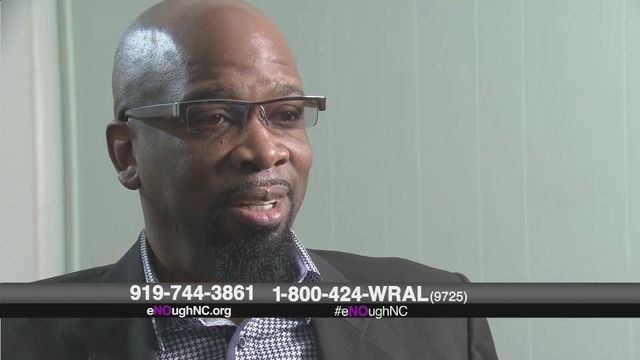Program helps abusers break the cycle
There is a mindset that allows an abuser to think his or her actions are acceptable. Those who work to change that mindset say the counseling, empathy and greater responsibility learned in the DOSE program can change lives.
Posted — UpdatedIn any instance of domestic abuse, the crime goes beyond the physical. There is a mindset that allows an abuser to think his or her actions are acceptable. Until that mindset is changed, and an abuser learns new ways of dealing with anger and control issues, the cycle of abuse continues.
Those who work on that change say the counseling, empathy and greater responsibility learned in the DOSE program can change lives.
DOSE, Developing Opportunities for a Safe Environment, is a program of Triangle Family Services offered for men and women, in English and in Spanish.
Many in the program are referred when a court orders them to get help after an incident of domestic violence.
"All of us have been in highly confrontational situations. It's how you react that makes the difference between if you're going to be charged with something or arrested or if you have the tools you need to move through the situation," Triangle Family Services director Alice Lutz said.
Danny McCullers' wife of 23 years took out a protective order against him after he intimidated her during an argument. A judge ordered him to take part in DOSE.
"Basically, it was the physical, up-in-your face, kind of thing that made her feel fearful," McCullers said.
At first, he thought he didn't need DOSE. Now, he says it has changed his life.
"I'm a lot calmer, a lot more relaxed," he said. "My point of view about a lot of things has changed.
"Before I react, before I answer a question, I stop and I think about it, and I make sure I respond appropriately," he said.
"It took some time to learn that skill ... but it's very effective."
Johnette Smith, a DOSE facilitator, describes what she tries to teach this way: "I need to separate myself from you or from the situation so that when we come back we can talk about it."
Smith says a primary role is to listen, to really hear the problems and then to offer positive insight.
"The younger we start to learn these tools and to learn about abuse and to learn about effective communication, the better," McCullers said. "I think we should start somewhere around middle school."
Lutz said that 98 percent of people who complete DOSE have not re-offended within the year following the program.
The challenge is getting them to commit. Only 57 percent of people ordered to the program actually complete it, she said.
eNOugh domestic violence: eNOughNC
• Credits
Copyright 2024 by Capitol Broadcasting Company. All rights reserved. This material may not be published, broadcast, rewritten or redistributed.






